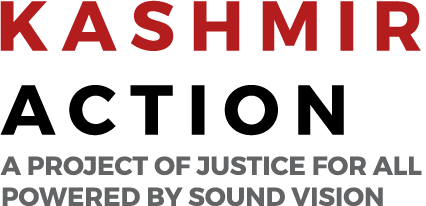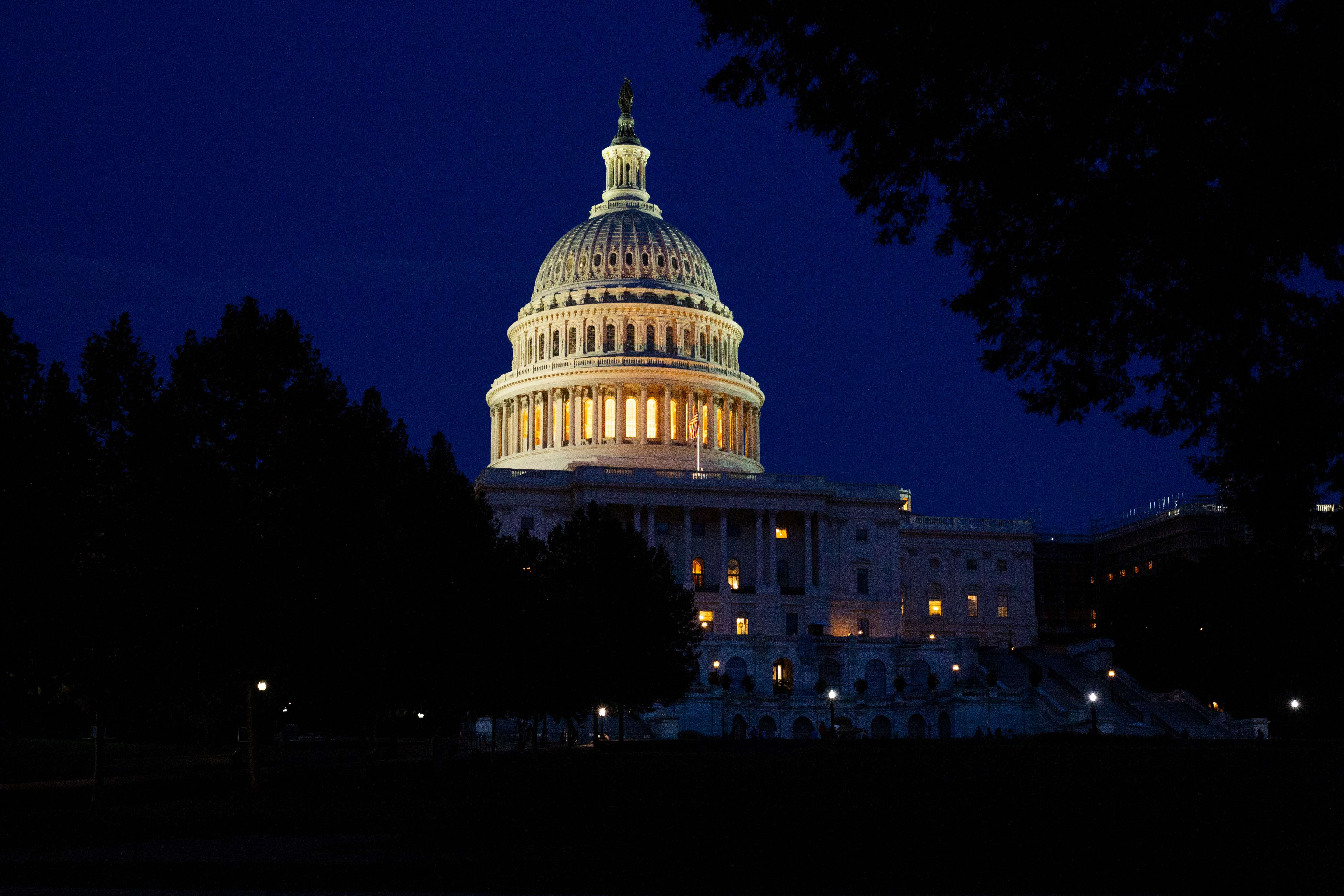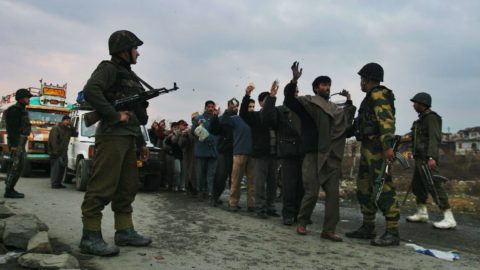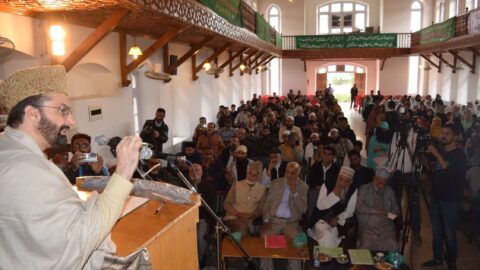On April 8th, three Kashmiri civilians were booked under Public Safety Act (PSA) in north…
“Jammu and Kashmir in Context” Congressional Hearing Analysis
Kashmir was the subject of another hearing at the US Congress. We must applaud the brave Kashmiris who spoke at the hearing and must give credit to the Kashmiri led groups who are actively working on their cause. Here is an analysis of the hearing by Justice For All Staff.
The Tom Lantos Commission on Human Rights held Jammu and Kashmir in Context on November 14, 2019, at 2:00 pm at 2200 Rayburn House Office Building.
The head of the Commission, Rep. Jim McGovern (D-MA), chaired the hearing. Although Islamophobic tropes and the usual “war on terror” framing were brought up, they were deftly handled by human rights lawyers, scholars and advocates. The Commission concluded that the US government and its genuine bipartisan “deep concern” for the human rights and freedom of religion and dignity of Kashmiris was not “going away”. As pathways forward he proposed the complete removal of the communication blockade and the opening of the region to international journalists, human rights observers and American Congressional delegations and urged India to act upon the UN High Commission’s recommendations. He also reiterated the right of every human to exercise their political will and nations cannot stamp on the right to self-determination. Member Rep. Sheila Jackson Lee demanded follow up and action from the State Department and asked for Members of Congress be allowed to visit both parts of Jammu and Kashmir.
Representatives David Trone of Maryland and David Cicilline of Rhode Island had supportive statements and were critical of the use of national security tropes to trample human rights. Rep. Trone brought up rights of minorities in India, particularly in Assam. Rep. Cicilline was very concerned about Hindu nationalism and that the foundation of India and United States relations was mutual respect and the disregard of values of democracy and human rights were contrary to that foundation. He questioned the relationship between the Hindu nationalist paramilatary Rashtriya Seva Sangh (RSS) and the Bharatiya Janatā Party (BJP). U.S. Commission on International Religious Freedom (USCRIF) Commissioner Anurima Bhargava gave testimony that the RSS can act with impunity. She brought up the similarities of intolerance, rhetoric of hate and the use of citizenship to oppress Muslims in Burma and India.
Rep. Brian Fitzpatrick was extensively concerned about healthcare and basic services.
The hearing was sparsely attended by Congresspeople. These are the Congresspeople who came to the hearing and asked questions:
- Co-Chair James McGovern (D-MA 2nd District) @RepMcGovern
- David Trone (D-MD 6nd District) @davidjtrone
- David Cicilline (D-RI 1st District) @davidcicilline
- Brian Fitzpatrick (R-PA 1st District) @BrianFitzUSA
- Sheila Jackson Lee (D-TX 18th District) @JacksonLeeTX18
- Pramila Jayapal (D-WA 7th District) @RepJayapal
- Chris Smith (R-NJ 4th District) @RepChrisSmith
Action Requested
Click here to thank those who attended and to ask the rest of the members of commission why they did not attend the hearing. http://bit.ly/Kashmirhearing
A closer look at the panels and path forward:
Panelist included Anurima Bhargava, Commissioner, U.S. Commission on International Religious Freedom (USCRIF)
Important points from her testimony:
- Focused on the worsening religious freedom conditions in India that have informed how non-Hindu minorities are treated in Jammu and Kashmir and throughout India
- USCRIF has not been able to visit India for the past 15 years
- Growing movement and ideology around Hindu nationalism.
- There is a sense and perception that religious minorities in India are in a state of fear and active persecution
- Even according to the Indian government, the vast majority of people living in Kashmir are not engaged in violence or any kind of threats to national security
The second half of the hearing focused on testimony from human rights organizations and representatives from the region.
Haley Duschinski, Associate Professor of Anthropology and Director of the Center for Law, Justice and Culture, Ohio University
Highlights from her testimony:
- Kashmir scholars call this the third stage in India’s long-standing occupation of Kashmir
- UN Security Council established that Kashmir’s future would be determined through a plebiscite and right of self-determination
- 3,800 people were detained according to official counts however the real number is much closer to 10,000, including young boys as documented by the fact-finding missions of Indian civil society
- Currently, Indian military forces are terrorizing the population with torture on loudspeakers
- There is a lack of due process
- Several ethnic and religious minorities are affected
- Pundits and other minorities live harmoniously with Muslims
- It’s imperative to investigate all crimes against Kashmiri pundits through an international inquiry since Indian criminal justice processes have failed
- It’s also imperative that the pain and suffering of any Kashmiri community should not be instrumentalized, manipulated or weaponized as a claim against other communities.
- There is a human rights and humanitarian crisis, urged congress to leverage their position, support a resolution to end the siege and let Kashmiris find a solution
Path forward: Call for a resolution
Sehla Ashai, Human rights lawyer of Kashmiri descent
Highlights from her testimony:
- Kashmiris have been fighting for the right to self-determination
- Kashmir is an international issue, not an internal affair for India
- Indian forces are preventing free assembly, stopping journalists
- Shared personal history of generations of political activists were detained, tortured or killed
- Asked all esp. Congress to humanize the siege
- “For Kashmiris, this is their day-to-day life”
- Encouraged members of Congress to pause when the issue becomes bilateral
- Kashmiri people don’t have power
- Countered Indian talking points on development, women and other minorities
- “If the facts are against you, argue the law. If the law is against you, argue the facts. If the law and facts are against you, pound the table and yell Pakistan”
Path forward: Fundamental rights of self-determination be resolved, with respect to minority rights
Yousra Fazili, Human rights lawyer and Kashmiri-American cousin of Mubeen Shah, detained Kashmiri businessman
Highlights from her testimony:
- She shared the story of Mubeen Shah’s detention arrested under the Public Safety Act
- “My cousin might be in jail and other people are in jail but the whole place is under arrest”
- Spoke about communications blackout with barely any movement in the streets
- Doctors are refusing to give death certificates, fueling the Indian army narrative of “no deaths”
- Many imprisoned without just cause
- Kashmiris have their own agency and can speak for themselves
- “It’s not coordinated by anybody else but ourselves.”
- Kashmir is a local issue
Pathway forward: Credible local elections, no children should be in detention, a fact finding mission, implementation of due process
Arjun S. Sethi, Human rights lawyer and Adjunct Professor, Georgetown Law
- Spoke on the humiliation of Kashmiris: Kashmiris have had to lick dirt off the road for not reciting nationalist mantras
- RSS and the usage of language that calls Muslims “internal threats”
- He equated the treatment of Muslims to Jews in Germany
- Lynching is so common that it is arranged on social media and videos are shared online
- He shared that Modi trained with RSS at the age of 8, proud to be a member
- Sethi was accused of having an “agenda” at the hearing and countered that this is the cost of speaking truth to PM Modi, Amit Shah, and the Indian Govt
- He said he does have an agenda for human and civil rights respected regardless of Faith/Race
- 700,000 Indian officers engaged in mass suspension of human rights in occupied Kashmir
- Kashmiris are detained, blinded, can’t worship or speak freely
- India leads the world in internet blackouts
- Reiterated the ask to allow human rights observers into the region
- India is hiding its atrocities in Assam, Kashmir, rising hate violence
Pathway forward: Congress must continue to meet with constituents and counter RSS influence in the US, should ask for unfettered access to India. Stop the torture of children, Collective punishment should not be tolerated, repeal Public Safety Act
Sunanda Vashisht, Writer, political commentator, and Kashmiri Hindu who identifies as a victim of ethnic cleansing
- BJP talking points
John Sifton, Asia Advocacy Director, Human Rights Watch
- Since the Bharatiya Janata Party (BJP) won national elections in May and returned Prime Minister Narendra Modi for a second term, government authorities have continued harassing, and sometimes prosecuting, outspoken rights groups, human rights defenders, and journalists for criticizing the government, while failing to credibly investigate increasing numbers of mob attacks, often led by BJP supporters, against religious minorities and other vulnerable communities.
- There also continues to be major ongoing concerns with freedom of expression, women’s rights, children’s rights, and rights of Dalits, tribal groups, and religious minorities.
- Indian security forces have often used excessive force to respond to protests, including using pellet-firing shotguns as a crowd-control weapon, which have caused several protester deaths and many serious injuries.
- Indian troops have seldom been held accountable for human rights violations that have occurred during counter-insurgency operations. The Armed Forces Special Powers Act (AFSPA) continues to provide Indian soldiers effective immunity from prosecution for serious human rights abuses.
- Since the law came into force in Kashmir in 1990, the Indian government has not granted permission in any case to prosecute personnel in civilian courts.
- Until the Indian government acknowledges and addresses how their own abuses impact the situation, problems in Kashmir are likely to endure.
Path forward: Congress engage with the government of Pakistan and India and control actions and statements that inflame the situation.
From Muslim American Perspective:
- Anti Muslim and Islamophobic rhetoric was tolerated under the guise of helping India eradicate ‘Islamist terror’
On Kashmir Considerations:
- There was good support for the human rights of Kashmiris.
- Two Kashmiri Muslims addressed the hearing.
- Impediment to freedom of religion was addressed
- The right of self-determination for Kashmiris was brought up and the international nature of the Kashmir issue was stressed
On Indian Minorities issues:
- RSS and BJP’s connections were covered
- Human Rights problems in Kashmir are linked to the overall human rights situation in India
- Religious persecution and violence against minorities was covered
The division in the crowd was a reflection of how Kashmiri testimonies are denied and the gravity of the crisis is diminished. After reports and facts are provided, many Indian Hindus continue to argue that the reports are fabricated. It is important to understand the Indian American mindset.




